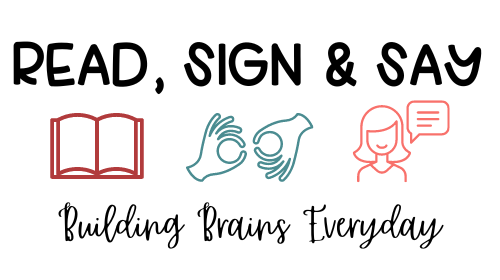Literacy, which refers to the ability to read and write, is closely connected to oral language skills.
In fact, oral language skills are often considered the foundation upon which literacy is built. Learning to read and write starts with the development of oral language skills as an infant.
Here’s an explanation of how literacy begins with oral language skills:
Language Development
Before children learn to read and write, they develop oral language skills by listening to and interacting with the people around them. They acquire vocabulary, grammar, and syntax through oral communication. These skills form the basis for understanding and using language effectively.
Phonological Awareness
Oral language skills include phonological awareness, which is the ability to identify and manipulate the sounds of language. Children learn to distinguish and produce different sounds, such as recognizing rhyming words or breaking words into syllables. This understanding of the sound structure of language is crucial for later decoding and spelling in reading and writing.
Vocabulary Development
Oral language experiences expose children to a wide range of words, helping them expand their vocabulary. The more words children know, the more they can understand written texts when they encounter them. Vocabulary development also supports reading comprehension and the ability to express oneself effectively in writing.
Listening Comprehension
Strong oral language skills, including listening comprehension, play a vital role in literacy. When children listen to stories, conversations, or instructions, they develop the ability to understand and make meaning from spoken language. This comprehension skill transfers to reading comprehension, as children learn to decode written words and understand their meaning.
Language Structures and Syntax
Oral language skills contribute to understanding the structures and syntax of language. By observing and engaging in conversations, children learn how sentences are formed, how words relate to one another, and how grammar rules apply. This understanding supports sentence construction and writing coherence.

Narrative Skills
Oral language skills help develop narrative abilities, including storytelling and recounting events. Through oral narratives, children learn to sequence events, understand story structure, and use cohesive devices like conjunctions and pronouns. These skills are essential for writing narratives and organizing ideas in a coherent and logical manner.
Background Knowledge
Oral language experiences provide children with a wealth of background knowledge about the world. This knowledge enhances reading comprehension and writing skills by helping children make connections between what they read and what they already know. It also provides a foundation for critical thinking and understanding complex texts.
The bottom line…
Literacy begins with oral language skills because these skills lay the groundwork for understanding and using language effectively. Strong oral language abilities support the development of phonological awareness, vocabulary, listening comprehension, language structures, narrative skills, and background knowledge, all of which are essential for reading and writing proficiency.
The time is NOW, starting at birth, to begin developing those strong oral language skills. As a parent, you are your child’s FIRST and MOST IMPORTANT teacher.
Learning begins at birth… not Kindergarten.
Would you like to learn what to do to enhance oral language skills with your infant? Check out the Read, Sign, and Say Parent Curriculum.

